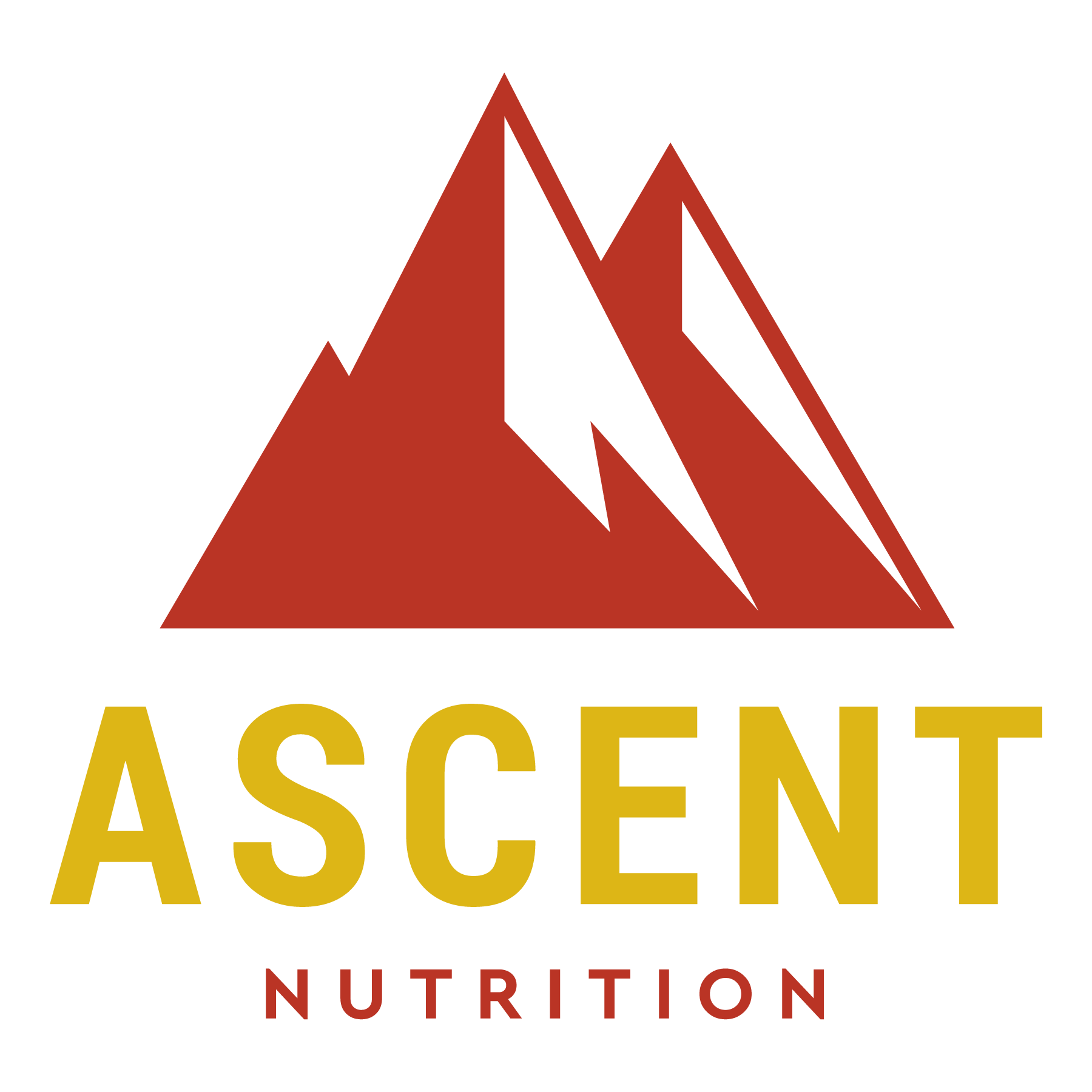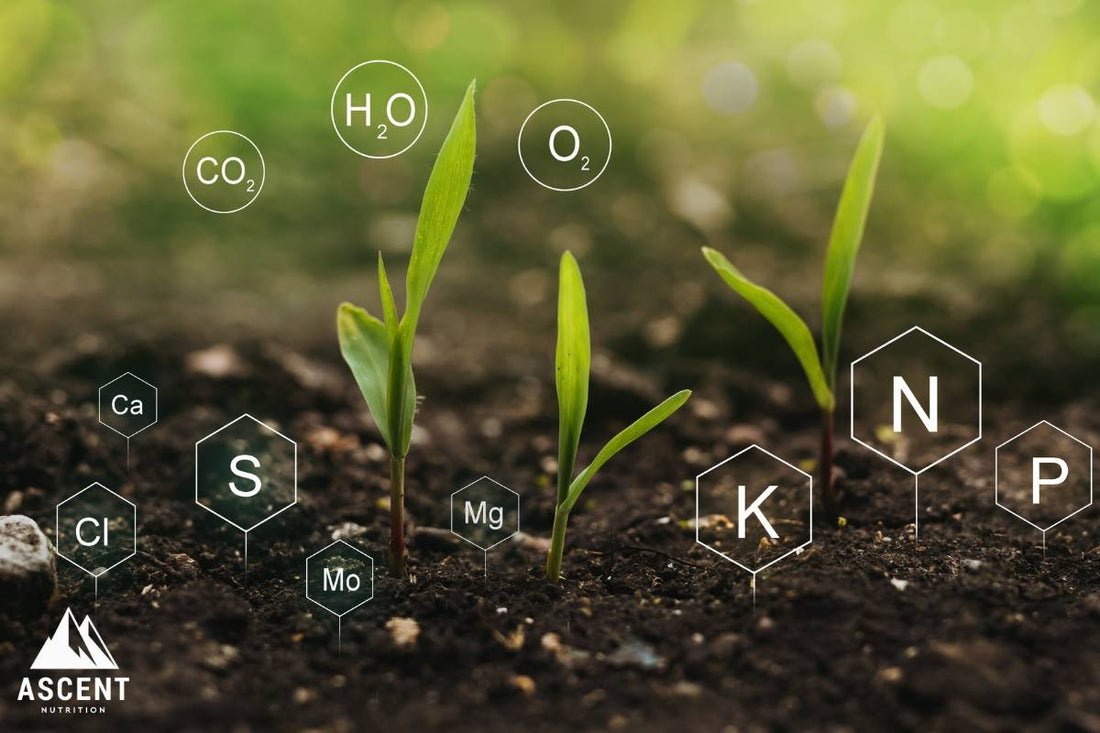Fulvic Acid, a natural compound found in soil and plants, plays a crucial role in promoting healthy nutrient absorption in the body. It’s potentially one of the most effective nutrient absorption supplements.
Healthy nutrient absorption is essential for optimal health, as it allows our bodies to make the most of the nutrients we consume. This is especially important in today's fast-paced world, where it can be challenging to eat a perfectly balanced diet full of nutritious whole foods grown in organic, mineral-rich soils.
Even when we try our best, gaps in nutrition are common. Factors like soil depletion, early harvesting, processing methods, digestive issues, and more can hinder our ability to adequately break down and absorb vitamins, minerals, and other nutrients from the food that we consume.
Over time, these nutritional shortfalls accumulate and cellular processes vital to health and well-being may be adversely affected.
Fortunately, Fulvic Acid supplements may help support our body’s ability to absorb and utilize nutrients by way of several mechanisms—including promoting gut health, helping scavenge harmful free radicals, and binding to essential nutrients to transport them across cell membranes.
Read on to learn more about the benefits of Fulvic Acid, how to help your body absorb nutrients, what supplements help your body absorb nutrients, and why Ascent Nutrition’s Humic and Fulvic Acid may be one of the best supplements for nutrient absorption.
How to Help Your Body Absorb Nutrients
Optimal health and well-being rely on our body's ability to absorb and utilize essential vitamins, minerals, and other essential nutrients effectively—highlighting why we need to improve nutrient absorption.
When we consume food, these nutrients need to be absorbed into our bloodstream and transported to our cells for use. Adequate intake and absorption of trace minerals is essential for cellular function, enzyme reactions, tissue growth, and energy production.
Poor nutrient absorption can lead to deficiencies, which may manifest as fatigue, weakened immune response, and various health issues.
Various factors can affect nutrient absorption, such as poor diet, age, stress, and imbalances in gut health. Addressing these factors is crucial for optimizing nutrient absorption. To address these issues, it is essential to maintain a healthy diet and lifestyle.
Consuming a well-balanced diet, rich in whole foods, fruits, vegetables, lean proteins, and healthy fats, can provide your body with the essential nutrients it needs. Additionally, regular exercise, adequate sleep, and stress management can contribute to overall health and improve nutrient absorption.
Incorporating supplements into your health regimen can further enhance optimal nutrient absorption—ensuring your body is receiving the essential nutrients it needs to thrive.
What Supplements Help Your Body Absorb Nutrients? – Fulvic Acid
If you’re wondering how to help your body absorb nutrients, consider supplementing with a quality Humic and Fulvic Acid supplement.
With the increasing demand for supplements to support overall health and well-being, Fulvic Acid has gained attention for its remarkable ability to promote nutrient absorption during digestion and support optimal nutrient delivery to cells.
Fulvic Acid is a naturally occurring compound found in soil, plants, and water, formed through the decomposition of organic matter. It plays a crucial role in supporting nutrient absorption—making it a valuable supplement for individuals seeking optimal health and well-being.
Fulvic Acid is known for its ability to chelate minerals and enhance nutrient transport across cell membranes. This unique property allows Fulvic Acid to promote the bioavailability of nutrients, supporting the body’s ability to effectively utilize them.
Furthermore, Fulvic Acid can stimulate enzyme activity, promote gut health, help the body scavenge free radicals, and support a healthy detoxification process—further contributing to its role in supporting healthy nutrient absorption.
Benefits of Fulvic Acid for Nutrient Absorption
Fulvic Acid is one of the main components of Humic substances, which are found in healthy soil, peat, shilajit, and natural bodies of clean water.
Fulvic Acid stands out for its potent ability to chelate (bind to) minerals and enhance their bioavailability. Because of this, supplementing with Fulvic Acid has emerged as a promising way to support the body’s assimilation of nutrients from food.
What makes Fulvic Acid so effective at helping your body absorb nutrients? Several unique properties of Fulvic Acid underlie its capacity to improve nutrient absorption.
Nutrient Bioavailability and Heavy Metal Detoxification
Fulvic Acid's unique molecular structure allows it to easily transport nutrients across cell membranes, promoting healthy absorption and utilization by the body [1].
Fulvic Acid particles are so small that they can cross any cellular membrane, including the blood-brain barrier. This property helps Humic and Fulvic Acid to carry nutrients like minerals and vitamins into cells.
Fulvic Acid is also a powerful chelator, which means it can bind to minerals and nutrients—making them more easily absorbed by the body. Chelation is a process in which a molecule binds to a metal ion, effectively increasing its solubility and bioavailability.
The particles carry an ionic charge that allows Fulvic Acid to readily bind to nutritional minerals as well as potentially toxic heavy metals. However, only the mineral ions remain bioavailable once bound to Fulvic Acid.
In one 2019 study, researchers claimed that “Due to the structure of Fulvic Acids and their chelating properties, they can help to transport some nutrients, mainly minerals, to cells and remove deeply embedded toxins from the body" [2].
When a mineral is chelated by Fulvic Acid, it’s placed in a chemical state that allows it to be readily absorbed by a cell [3]. On the other, chelated heavy metals are placed in a chemical state that renders them difficult to absorb, promoting healthy detoxification.
Therefore, the chelation process helps promote the bioavailability of essential minerals, vitamins, and other nutrients, enabling our bodies to make better use of the nutrients we consume. Likewise, the chelation of toxins supports the body’s natural ability to safely detoxify and remove heavy metals.
Humic and Fulvic Acid may also support the permeability of cell membranes, allowing more nutrients to pass through them.
In summary, by promoting the movement of nutrients into cells and toxins out of cells, Fulvic Acid can help support overall health and wellness.
Supporting Gut Health and Promoting a Balanced Microbiome
A healthy gut is necessary for optimal nutrient absorption as it helps maintain the balance of good bacteria and supports proper digestion. Beneficial bacteria play a crucial role in breaking down and assimilating nutrients.
Fulvic Acid has been found to support gut health by promoting the growth of beneficial gut bacteria and supporting a healthy inflammatory response [4]. By supporting gut health, Fulvic Acid can help encourage healthy nutrient absorption and promote overall well-being.
Learn More: Benefits of Humic and Fulvic Acid for Gut Health
Free Radical Scavenging
Fulvic Acid is one of the most potent free radical scavengers known. It has 14,000,000,000,000,000,000,000 electrons that it can donate or receive to scavenge free radicals, which may lead to oxidative stress when left unchecked.
By supporting the body’s natural ability to reduce oxidative stress, Fulvic Acid can support overall health and promote nutrient absorption. This makes it a valuable supplement for those seeking to support overall well-being.
Best Supplement for Nutrient Absorption – Ascent Nutrition
By improving nutrient absorption, you can support your body's overall health, well-being, and functioning. Consider incorporating Fulvic Acid as a nutrient absorption supplement in your daily routine to help the body make the most of the nutrients it receives.
But when considering adding a Fulvic Acid supplement to your regimen, it is essential to choose a high-quality product from a reputable source.
Ascent Nutrition's commitment to quality ingredients makes their Humic & Fulvic Acid supplement a reliable choice for those seeking to improve nutrient absorption and overall health.
As one of the best supplements for nutrient absorption, Ascent Nutrition's Humic & Fulvic Acid is sourced from pristine, rich soil deposits in the U.S. It is produced through a special extraction process that aims to preserve Fulvic Acid’s natural properties by avoiding chemicals or other harsh extraction practices.
The extraction process we use also allows us to deliver a finished product that is 20X smaller than average. The outcome is a supplement containing a high purity and concentration of all Humic Acid and Fulvic Acid.
Experience the benefits of Fulvic Acid with Ascent Nutrition's Humic & Fulvic Acid supplement and take a step towards optimal nutrient absorption and overall health.
Visit our product page to learn more and make a well-informed decision for your well-being.
Reference
-
Winkler, J., & Ghosh, S. (2018). Therapeutic potential of Fulvic Acid in chronic inflammatory diseases and diabetes. Journal of diabetes research, 2018: https://www.ncbi.nlm.nih.gov/pmc/articles/PMC6151376/
-
Swat, M., Rybicka, I., & Gliszczyńska-Świgło, A. (2019). Characterization of Fulvic Acid beverages by mineral profile and antioxidant capacity. Foods, 8(12), 605: https://www.ncbi.nlm.nih.gov/pmc/articles/PMC6963745/
-
Terratol, L. L. C. (2002). Effects of Humic Acid on animals and humans: https://Fulvic.info/wp-content/uploads/2019/01/M-Terratrol_Article-1.pdf
-
Swidsinski, A., Dörffel, Y., Loening-Baucke, V., Gille, C., Reißhauer, A., Göktas, O., ... & Schrödl, W. (2017). Impact of Humic Acids on the colonic microbiome in healthy volunteers. World journal of gastroenterology, 23(5), 885: https://www.ncbi.nlm.nih.gov/pmc/articles/PMC5296205/

